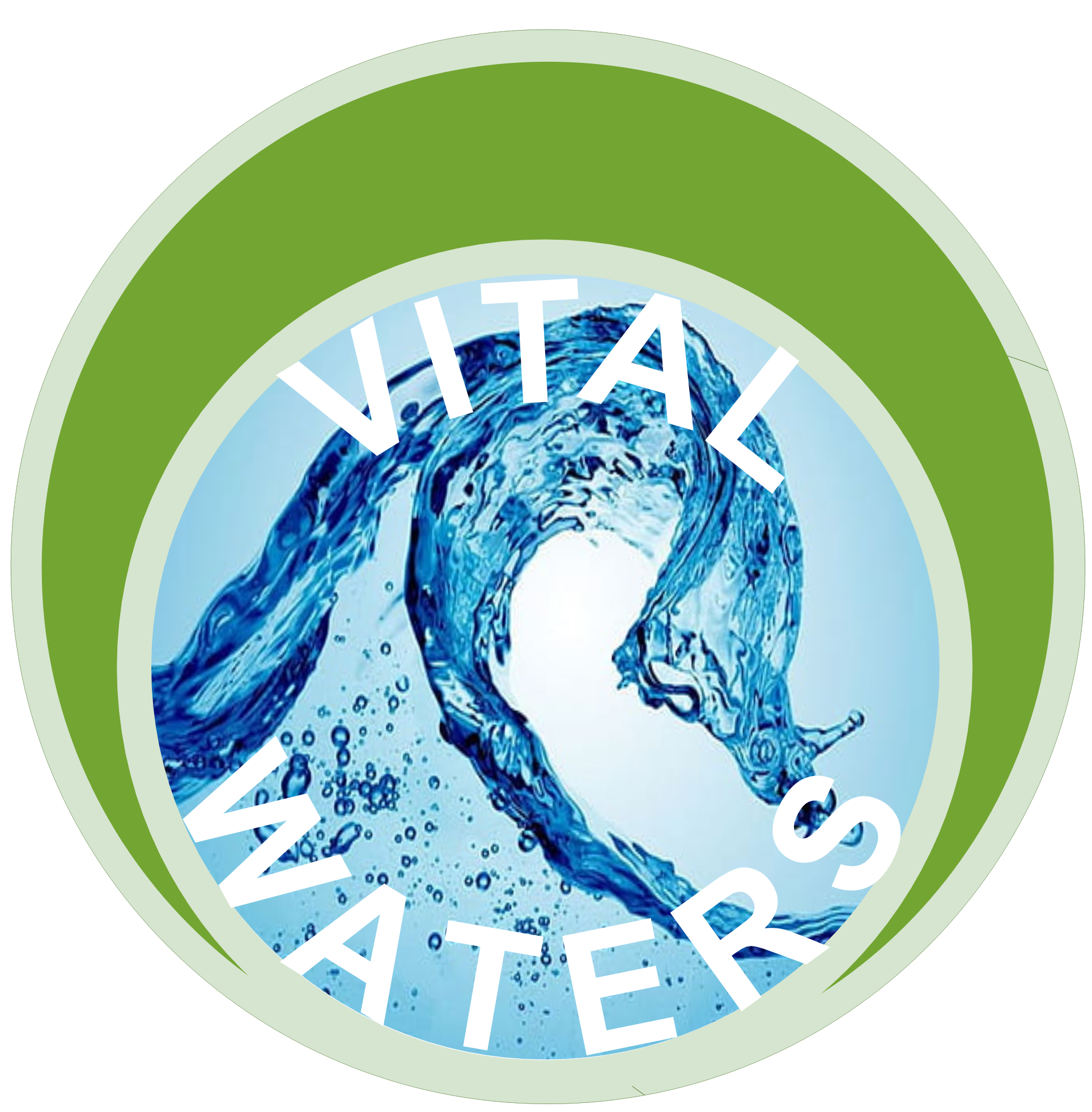

The horrors that hard water cause in your home
As anyone who has hard water can attest, it can certainly transform your home into a little shop of horrors!
But what does it mean to say your water is “hard,” exactly? It refers to the level of minerals that leach into the water as it filters through soil and rocks. If the mineral level is particularly high, the water may have a chalky or chemical taste. Though not considered hazardous to your health, calcium and magnesium are the main culprits for house woes. They are most evident in the stains, residue, and deposits they leave behind, whether that’s in toilets or tile grout. They can also clog your pipes and corrode your sink fixtures, leading to pricey plumbing bills.
Occluded pipes
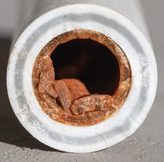 Probably one of the biggest horrors of hard water in the home is its effect on your plumbing. Namely, occluded pipes. Because of its high mineral content, when hard water travels through your pipes, it leaves a hard, scaly buildup behind. Over time, the buildup can get so thick that it clogs or slows the water flow. Besides this effect on water pressure, the buildup can also cause other problems.
Probably one of the biggest horrors of hard water in the home is its effect on your plumbing. Namely, occluded pipes. Because of its high mineral content, when hard water travels through your pipes, it leaves a hard, scaly buildup behind. Over time, the buildup can get so thick that it clogs or slows the water flow. Besides this effect on water pressure, the buildup can also cause other problems.
Foul smell
 That unpleasant and unmistakable smell is caused by hydrogen sulfide gas. The hydrogen sulfide gas results from naturally occurring sulfur bacteria and its chemical reactions with the soil and rocks. Hard water in your hot water heater creates the perfect environment for the sulfur bacteria to multiply, making this a common hotspot.
That unpleasant and unmistakable smell is caused by hydrogen sulfide gas. The hydrogen sulfide gas results from naturally occurring sulfur bacteria and its chemical reactions with the soil and rocks. Hard water in your hot water heater creates the perfect environment for the sulfur bacteria to multiply, making this a common hotspot.
Faucets become corroded
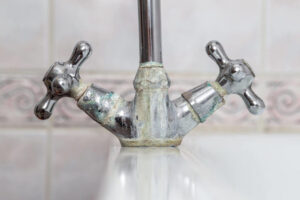 Corroded faucets are yet another hard water horror that people must endure. The minerals in hard water also cause the corrosion of metals in faucets. Hard water corrosion is not only an aesthetic nightmare but also affects functionality. It can cause problems with the flow of your water, make it difficult to turn the handles, and even stop the faucet’s function altogether. It’s important to remove corrosion before that happens.
Corroded faucets are yet another hard water horror that people must endure. The minerals in hard water also cause the corrosion of metals in faucets. Hard water corrosion is not only an aesthetic nightmare but also affects functionality. It can cause problems with the flow of your water, make it difficult to turn the handles, and even stop the faucet’s function altogether. It’s important to remove corrosion before that happens.
Certain metals are more prone to corrosion from hard water than others due to how it occurs. As previously discussed, hard water contains a higher level of certain minerals. Which minerals largely depend upon where you live and what’s in the ground there. Calcium is typically one of the highest and forms calcium chloride, which attacks copper and stainless steel in particular. It results in pitting, corrosion, and (often) calcium buildup.
Black manganese stains in toilet tank
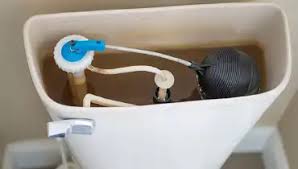 Manganese is a naturally occurring mineral humans actually need in smaller quantities, but ideally not through our drinking water. High levels of manganese in your hard water can result in black stains in places like your toilet tank or dishwasher. Unfortunately, this mineral is not easy to remove from your water, even with a water softener. You would need a special treatment for that, and it would need to be done in addition to a water softening system, or else it can shorten its lifespan significantly.
Manganese is a naturally occurring mineral humans actually need in smaller quantities, but ideally not through our drinking water. High levels of manganese in your hard water can result in black stains in places like your toilet tank or dishwasher. Unfortunately, this mineral is not easy to remove from your water, even with a water softener. You would need a special treatment for that, and it would need to be done in addition to a water softening system, or else it can shorten its lifespan significantly.
Appliances are less efficient
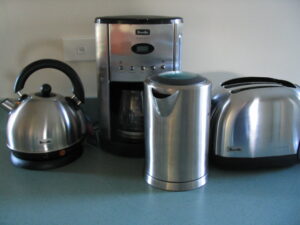 Appliances that use a lot of water, such as the dishwasher, washing machine, refrigerator, and water heater all run less efficiently with hard water. In fact, using hard water with these appliances can decrease their lifespan by 30-50%. Hard water is hard on machines just like it’s hard on the other surfaces it has prolonged contact with. Pipes that carry hot water are more prone to corrosion, though it occurs in all pipes hard water flows through.
Appliances that use a lot of water, such as the dishwasher, washing machine, refrigerator, and water heater all run less efficiently with hard water. In fact, using hard water with these appliances can decrease their lifespan by 30-50%. Hard water is hard on machines just like it’s hard on the other surfaces it has prolonged contact with. Pipes that carry hot water are more prone to corrosion, though it occurs in all pipes hard water flows through.
Limescale and sediment from hard water minerals cause significant problems for water-using appliances. When they have to work twice as hard to do their jobs, their efficiency is reduced, and you’ll eventually see an increase in your energy bills. The problems from hard water in your appliances can result in leaks and reduced water flow. Replacing parts and maintenance calls are common.
Calcification on shower heads and faucets
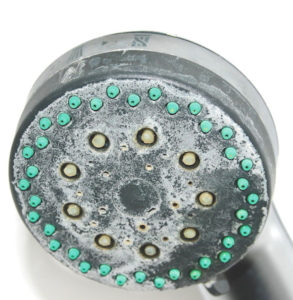 Due to calcification, shower heads and faucet taps will need to be cleaned more often when using hard water. Calcium deposits are a problem wherever water flows into your home, caused by the mineral content in hard water. These deposits cause the same kinds of issues that corrosion does. This can include interrupting the directional flow and experiencing water pressure reduction.
Due to calcification, shower heads and faucet taps will need to be cleaned more often when using hard water. Calcium deposits are a problem wherever water flows into your home, caused by the mineral content in hard water. These deposits cause the same kinds of issues that corrosion does. This can include interrupting the directional flow and experiencing water pressure reduction.
Stains in toilet
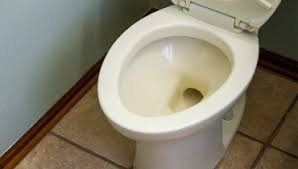 Another mineral often found in abundance in hard water is ferrous sulfate, commonly known as iron. If you see reddish-colored stains in your toilet bowl, shower, or bathtub, it may be due to a high concentration of iron in your hard water. High iron content in hard water will sometimes result in reddish-brown or reddish-orange stains that can be tough to get rid of. High iron content in hard water turns to rust, which is what these stains really are. It can also stain plumbing fixtures and even laundry.
Another mineral often found in abundance in hard water is ferrous sulfate, commonly known as iron. If you see reddish-colored stains in your toilet bowl, shower, or bathtub, it may be due to a high concentration of iron in your hard water. High iron content in hard water will sometimes result in reddish-brown or reddish-orange stains that can be tough to get rid of. High iron content in hard water turns to rust, which is what these stains really are. It can also stain plumbing fixtures and even laundry.
Water stains or spots
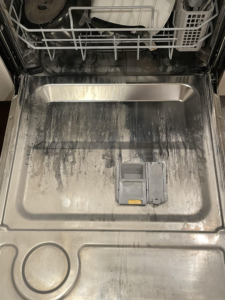
Another common hard water horror is the dreaded water spots left behind on clean dishes. This can be especially frustrating when unloading your dishwasher to find hard water spots on everything!
Leaves soap scum behind
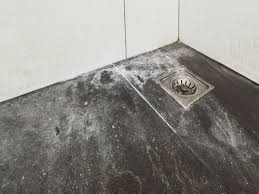 Most people have had the experience of dealing with soap scum at one time or another. Soap scum is exacerbated by the minerals in hard water, preventing the soap from doing its job effectively. Normally, the molecules in soap bind with water and the dirt from our skin, and when we rinse off, it all goes effortlessly down the drain. However, the high mineral content in hard water blocks the binding process, forming an excess of the grayish-white film we recognize as soap scum. This persistent substance sticks to showers, bathtubs, sinks, shower curtains and the like. Soap scum also contains body oils, dead skin, dirt, and even hair. Unfortunately, this is also part of the ongoing battle for those dealing with hard water.
Most people have had the experience of dealing with soap scum at one time or another. Soap scum is exacerbated by the minerals in hard water, preventing the soap from doing its job effectively. Normally, the molecules in soap bind with water and the dirt from our skin, and when we rinse off, it all goes effortlessly down the drain. However, the high mineral content in hard water blocks the binding process, forming an excess of the grayish-white film we recognize as soap scum. This persistent substance sticks to showers, bathtubs, sinks, shower curtains and the like. Soap scum also contains body oils, dead skin, dirt, and even hair. Unfortunately, this is also part of the ongoing battle for those dealing with hard water.
Limescale on water heater increases energy and heating costs
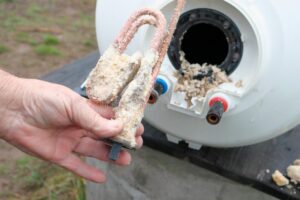 Hard water limescale is so taxing on your hot water heater that it can raise energy costs by 29%! As we discussed with appliances, limescale builds inside the water heater and causes problems. The tank in particular is vulnerable to excessive deposits. The heat provides the perfect incubator for turning the minerals into limescale at a faster rate.
Hard water limescale is so taxing on your hot water heater that it can raise energy costs by 29%! As we discussed with appliances, limescale builds inside the water heater and causes problems. The tank in particular is vulnerable to excessive deposits. The heat provides the perfect incubator for turning the minerals into limescale at a faster rate.
The layers of limescale grow and line the entire surface of the interior walls, further insulating the heated tank. With no way for heat to escape, the tank overheats and reduces its lifespan. Additionally, the sediment that lines the bottom of the tank causes it to work less efficiently and raises energy costs.
Shortens lifespan of clothes
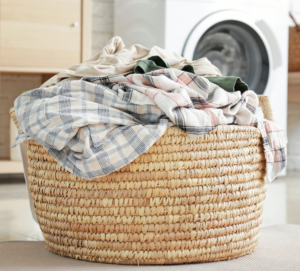 Yet another hard water horror is the toll it takes on your clothes! When you have to wash your clothes in hard water, certain signs can begin to show up to warn you that something’s amiss. For example, fabrics tend to fade quickly and start to yellow or gray easily. They may even get streaked gray or white. Even after washing and drying, materials remain stiff. Some of these fabrics become weakened and tend to tear or rip easily.
Yet another hard water horror is the toll it takes on your clothes! When you have to wash your clothes in hard water, certain signs can begin to show up to warn you that something’s amiss. For example, fabrics tend to fade quickly and start to yellow or gray easily. They may even get streaked gray or white. Even after washing and drying, materials remain stiff. Some of these fabrics become weakened and tend to tear or rip easily.
Additionally, clothes don’t get as clean in hard water because the detergent doesn’t mix well with the minerals. Sometimes there will be a residue left over after washing.
Calcium scaling in your swimming pool
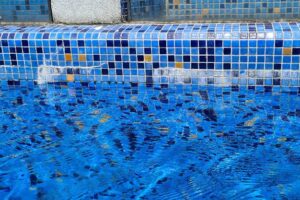 Unfortunately, calcium scaling and buildup also occur in the swimming pool. Two types can occur:
Unfortunately, calcium scaling and buildup also occur in the swimming pool. Two types can occur:
Calcium carbonate
Calcium silicate
Stains in toilet
 Another mineral often found in abundance in hard water is ferrous sulfate, commonly known as iron. If you see reddish-colored stains in your toilet bowl, shower, or bathtub, it may be due to a high concentration of iron in your hard water. High iron content in hard water will sometimes result in reddish-brown or reddish-orange stains that can be tough to get rid of. High iron content in hard water turns to rust, which is what these stains really are. It can also stain plumbing fixtures and even laundry.
Another mineral often found in abundance in hard water is ferrous sulfate, commonly known as iron. If you see reddish-colored stains in your toilet bowl, shower, or bathtub, it may be due to a high concentration of iron in your hard water. High iron content in hard water will sometimes result in reddish-brown or reddish-orange stains that can be tough to get rid of. High iron content in hard water turns to rust, which is what these stains really are. It can also stain plumbing fixtures and even laundry.
Water stains or spots

Another common hard water horror is the dreaded water spots left behind on clean dishes. This can be especially frustrating when unloading your dishwasher to find hard water spots on everything!
Leaves soap scum behind
 Most people have had the experience of dealing with soap scum at one time or another. Soap scum is exacerbated by the minerals in hard water, preventing the soap from doing its job effectively. Normally, the molecules in soap bind with water and the dirt from our skin, and when we rinse off, it all goes effortlessly down the drain. However, the high mineral content in hard water blocks the binding process, forming an excess of the grayish-white film we recognize as soap scum. This persistent substance sticks to showers, bathtubs, sinks, shower curtains and the like. Soap scum also contains body oils, dead skin, dirt, and even hair. Unfortunately, this is also part of the ongoing battle for those dealing with hard water.
Most people have had the experience of dealing with soap scum at one time or another. Soap scum is exacerbated by the minerals in hard water, preventing the soap from doing its job effectively. Normally, the molecules in soap bind with water and the dirt from our skin, and when we rinse off, it all goes effortlessly down the drain. However, the high mineral content in hard water blocks the binding process, forming an excess of the grayish-white film we recognize as soap scum. This persistent substance sticks to showers, bathtubs, sinks, shower curtains and the like. Soap scum also contains body oils, dead skin, dirt, and even hair. Unfortunately, this is also part of the ongoing battle for those dealing with hard water.
Limescale on water heater increases energy and heating costs
 Hard water limescale is so taxing on your hot water heater that it can raise energy costs by 29%! As we discussed with appliances, limescale builds inside the water heater and causes problems. The tank in particular is vulnerable to excessive deposits. The heat provides the perfect incubator for turning the minerals into limescale at a faster rate.
Hard water limescale is so taxing on your hot water heater that it can raise energy costs by 29%! As we discussed with appliances, limescale builds inside the water heater and causes problems. The tank in particular is vulnerable to excessive deposits. The heat provides the perfect incubator for turning the minerals into limescale at a faster rate.
The layers of limescale grow and line the entire surface of the interior walls, further insulating the heated tank. With no way for heat to escape, the tank overheats and reduces its lifespan. Additionally, the sediment that lines the bottom of the tank causes it to work less efficiently and raises energy costs.
Shortens lifespan of clothes
 Yet another hard water horror is the toll it takes on your clothes! When you have to wash your clothes in hard water, certain signs can begin to show up to warn you that something’s amiss. For example, fabrics tend to fade quickly and start to yellow or gray easily. They may even get streaked gray or white. Even after washing and drying, materials remain stiff. Some of these fabrics become weakened and tend to tear or rip easily.
Yet another hard water horror is the toll it takes on your clothes! When you have to wash your clothes in hard water, certain signs can begin to show up to warn you that something’s amiss. For example, fabrics tend to fade quickly and start to yellow or gray easily. They may even get streaked gray or white. Even after washing and drying, materials remain stiff. Some of these fabrics become weakened and tend to tear or rip easily.
Additionally, clothes don’t get as clean in hard water because the detergent doesn’t mix well with the minerals. Sometimes there will be a residue left over after washing.
Calcium scaling in your swimming pool
 Unfortunately, calcium scaling and buildup also occur in the swimming pool. Two types can occur:
Unfortunately, calcium scaling and buildup also occur in the swimming pool. Two types can occur:
Calcium carbonate
Calcium silicate
Occluded pipes
 Probably one of the biggest horrors of hard water in the home is its effect on your plumbing. Namely, occluded pipes. Because of its high mineral content, when hard water travels through your pipes, it leaves a hard, scaly buildup behind. Over time, the buildup can get so thick that it clogs or slows the water flow. Besides this effect on water pressure, the buildup can also cause other problems.
Probably one of the biggest horrors of hard water in the home is its effect on your plumbing. Namely, occluded pipes. Because of its high mineral content, when hard water travels through your pipes, it leaves a hard, scaly buildup behind. Over time, the buildup can get so thick that it clogs or slows the water flow. Besides this effect on water pressure, the buildup can also cause other problems.
Foul smell
 That unpleasant and unmistakable smell is caused by hydrogen sulfide gas. The hydrogen sulfide gas results from naturally occurring sulfur bacteria and its chemical reactions with the soil and rocks. Hard water in your hot water heater creates the perfect environment for the sulfur bacteria to multiply, making this a common hotspot.
That unpleasant and unmistakable smell is caused by hydrogen sulfide gas. The hydrogen sulfide gas results from naturally occurring sulfur bacteria and its chemical reactions with the soil and rocks. Hard water in your hot water heater creates the perfect environment for the sulfur bacteria to multiply, making this a common hotspot.
Faucets become corroded
 Corroded faucets are yet another hard water horror that people must endure. The minerals in hard water also cause the corrosion of metals in faucets. Hard water corrosion is not only an aesthetic nightmare but also affects functionality. It can cause problems with the flow of your water, make it difficult to turn the handles, and even stop the faucet’s function altogether. It’s important to remove corrosion before that happens.
Corroded faucets are yet another hard water horror that people must endure. The minerals in hard water also cause the corrosion of metals in faucets. Hard water corrosion is not only an aesthetic nightmare but also affects functionality. It can cause problems with the flow of your water, make it difficult to turn the handles, and even stop the faucet’s function altogether. It’s important to remove corrosion before that happens.
Certain metals are more prone to corrosion from hard water than others due to how it occurs. As previously discussed, hard water contains a higher level of certain minerals. Which minerals largely depend upon where you live and what’s in the ground there. Calcium is typically one of the highest and forms calcium chloride, which attacks copper and stainless steel in particular. It results in pitting, corrosion, and (often) calcium buildup.
Black manganese stains in toilet tank
 Manganese is a naturally occurring mineral humans actually need in smaller quantities, but ideally not through our drinking water. High levels of manganese in your hard water can result in black stains in places like your toilet tank or dishwasher. Unfortunately, this mineral is not easy to remove from your water, even with a water softener. You would need a special treatment for that, and it would need to be done in addition to a water softening system, or else it can shorten its lifespan significantly.
Manganese is a naturally occurring mineral humans actually need in smaller quantities, but ideally not through our drinking water. High levels of manganese in your hard water can result in black stains in places like your toilet tank or dishwasher. Unfortunately, this mineral is not easy to remove from your water, even with a water softener. You would need a special treatment for that, and it would need to be done in addition to a water softening system, or else it can shorten its lifespan significantly.
Appliances are less efficient
 Appliances that use a lot of water, such as the dishwasher, washing machine, refrigerator, and water heater all run less efficiently with hard water. In fact, using hard water with these appliances can decrease their lifespan by 30-50%. Hard water is hard on machines just like it’s hard on the other surfaces it has prolonged contact with. Pipes that carry hot water are more prone to corrosion, though it occurs in all pipes hard water flows through.
Appliances that use a lot of water, such as the dishwasher, washing machine, refrigerator, and water heater all run less efficiently with hard water. In fact, using hard water with these appliances can decrease their lifespan by 30-50%. Hard water is hard on machines just like it’s hard on the other surfaces it has prolonged contact with. Pipes that carry hot water are more prone to corrosion, though it occurs in all pipes hard water flows through.
Limescale and sediment from hard water minerals cause significant problems for water-using appliances. When they have to work twice as hard to do their jobs, their efficiency is reduced, and you’ll eventually see an increase in your energy bills. The problems from hard water in your appliances can result in leaks and reduced water flow. Replacing parts and maintenance calls are common.
Calcification on shower heads and faucets
 Due to calcification, shower heads and faucet taps will need to be cleaned more often when using hard water. Calcium deposits are a problem wherever water flows into your home, caused by the mineral content in hard water. These deposits cause the same kinds of issues that corrosion does. This can include interrupting the directional flow and experiencing water pressure reduction.
Due to calcification, shower heads and faucet taps will need to be cleaned more often when using hard water. Calcium deposits are a problem wherever water flows into your home, caused by the mineral content in hard water. These deposits cause the same kinds of issues that corrosion does. This can include interrupting the directional flow and experiencing water pressure reduction.
Vital Waters has the solutions for your home
No more limescale deposits
♦ The pipes are self-cleaning as the water flows through them.
♦ Skin, hair feels smooth, soft.
♦ Household appliances (with resistance) are protected from scale deposits.
♦ Water heaters become more efficient.
♦ Water appliances look like new.
♦ Water appliances perform like new.
♦ Reduced use of cleaning products.
♦ Easier cleaning of the shower walls.
♦ No need to buy bottled water.
Swimming pool
♦ Activates the water and makes it clearer, softer, more crystal clear
♦ 50% reduction in the use of chlorine
♦ Facilitates the cleaning of the walls
♦ Eliminates algae in the water
♦ Prevents efflorescence of concrete
♦ Reduces itching and softens dry skin
” I have a 35000 gallons pool and keeping the water crystal-clear has been a challenge over the years. In 2024 I was introduced to the LiCA Technology which promised to make the swimming pool water clearer. It’s been 3 weeks since the installations done and I couldn’t happier.
1) I really love the fact there was no need to cut pipe to install the technology.
2) It took less than 15 mins to install.
3) NO maintenance required.
4) It’s taking no electricity , no batteries.
5) Most importantly, my swimming pool water is definitely as clear as it can be and I love it.
6) An unexpected surprise is the swimming pool water feels velvety on my skin- everyone comments on it.
I would definitely recommend Vital Waters and Lica technology for swimming pools and I am considering installing it for my whole house.”
AMIE, The Forest, Anguilla BWI
” The staines in the toilet bowls are now completely gone.
The shower heads are like brand new, the flow of water is as it was when our house was new, 12 years ago !”
Lynne, Low Land, Saint Martin
” the water is really very soft on our skins. Our hair feel softer, more nourished, we use less shampooing, soap.”
Bruce, Dallas, Texas
Lorem ipsum dolor sit amet, consectetur adipiscing elit. Ut elit tellus, luctus nec ullamcorper mattis, pulvinar dapibus leo.
